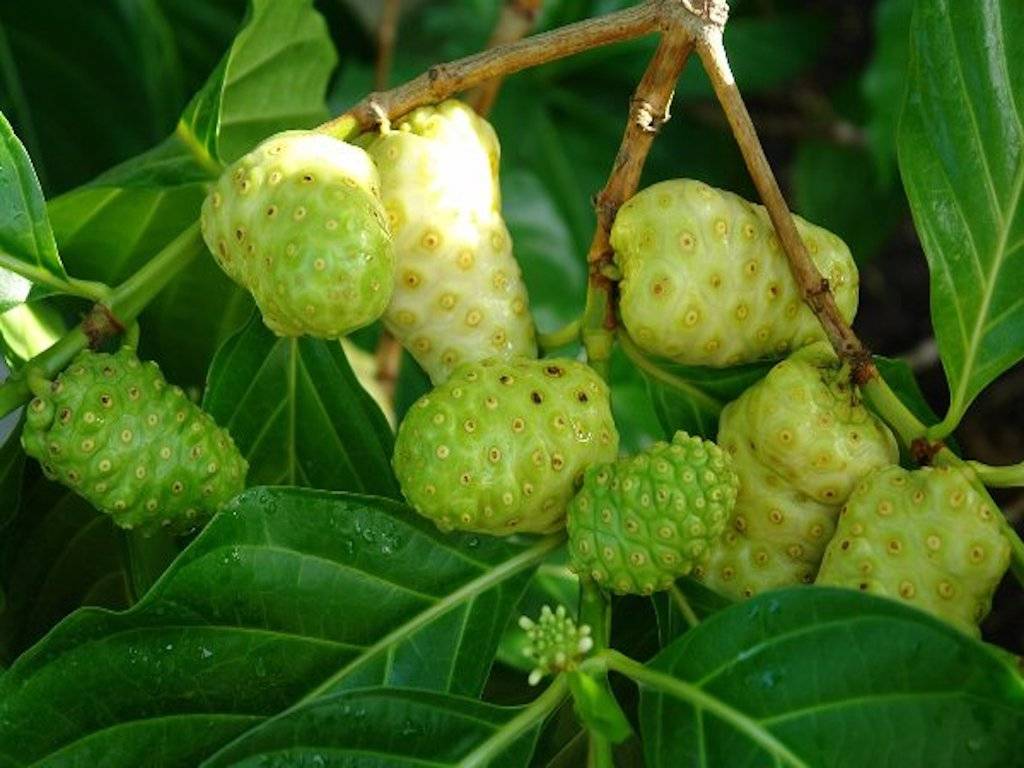
The Indian Mulberry, also known as Noni, is an indigenous fruit that has been used by ayurvedic medical practitioners for thousands of years. Amino acids, Vitamin C, and pectin are just a few of the nutrients found in this fruit. Its juice is used to prevent tumors and malignant cells from growing, as well as to enhance immunity and hair development.
Yet, locating this fruit and plant is difficult because it is not commonly grown across the country - it is only planted around the coasts of Karnataka, Tamil Nadu, Kerala, and Odisha because the seeds require a tropical climate to develop.
However, Prasenjeet Kumar (24), a Jharkhand Rai University B.sc Agriculture graduate and the proprietor of Jivanbodh Agrotech, has successfully grown Noni in his backyard in Bokaro, Jharkhand.
“I not only grew the fruits, but I also used conventional methods to extract juice from them. Prasenjeet said, "I was also able to germinate extra seeds from the fruits I grew."
Obtaining Noni Seeds
Prasenjeet learned about the benefits of Noni fruit in 2018 during a talk with his father. His father, an experimental farmer, spoke to him about the tropical fruit and how it could not be cultivated in their area.
He intended to enlist the support of his instructors to accomplish the "impossible" since he was in his final year of college. He began by locating a farm in Odisha that was already producing the fruit. After chatting with them, he learned that due to its hard outer covering, the seed can take up to six months to develop into a sapling.
The seed remains in tropical conditions for the next six months.
“When I first contacted the farm, they were willing to offer me a cutting or a plant, but not seeds. Seeds have so far failed to produce any results in non-coastal locations.
But I wanted to produce Noni from seed so that I might raise a plant that would thrive in Bokaro's climate. So I persuaded them and paid Rs 1,000 for 200 seeds,” says Prasenjeet.
Sprouting of The Seeds
He approached a professor who taught plant breeding at JRU University after receiving the seeds for advice on how to grow them.
The professor advised soaking the seeds in strong sulphuric acid for two minutes to break the shell. However, he cautioned that sulfuric acid might cause skin burns.
“I was hesitant to give it a shot, but my father consented to take a chance. So we went out and bought some pure sulphuric acid, immersed the seeds in it, and peeled off the outer layer. Despite wearing garden gloves and scooping the seeds with a steel ladle, my father was burned during the operation. He even created a low-cost polyhouse to grow the seeds in a temperature-controlled environment.
He built the playhouse out of wooden sticks that he wrapped in a plastic sheet. Within 50 days, 116 of the 200 seeds were germinated after being individually placed in sapling pots. The others stayed the same size.
The saplings were planted in garden soil that had been supplemented with organic manure and compost. Only 16 seedlings developed to a height of three feet and were healthy after only a few months.
“By November 2019, the trees were brimming with Noni fruits, thanks to the monsoon rainfall. The first year, I harvested up to 45 kg. I can collect at least 10 fruits from each tree every month because the tree produces fruits and blossoms throughout the year,” adds Prasenjeet.
He is now not selling the fruits and is keeping them for himself. His mother employs a traditional way to extract the juice, which she then uses to treat some patients.
“We decided against selling the fruits since they spoil quickly, even in cold storage. So we kept them in airtight jars and let them ripen in the sun,” Prasenjeet explains.
With The Goal Of Empowering Other Farmers
Prasenjeet took more seeds from the harvested fruits and attempted to germinate them once more. He did not, however, employ concentrated sulphuric acid this time. The seeds germinated in 45-50 days after he used the same playhouse procedure.
“I tried it with four seeds and it worked out great. I feel the seeds have adapted to Bokaro's climatic conditions and may be grown by other farmers as well,” says Prasenjeet, who adds that 10 seeds cost Rs 250 and a kilogram costs Rs 800. He hopes to demonstrate his accomplishment to Jharkhand Chief Minister Hemant Soren so that the government can help other farmers cultivate Noni and improve their livelihoods.











